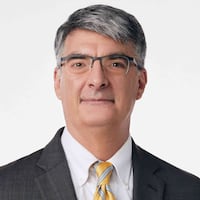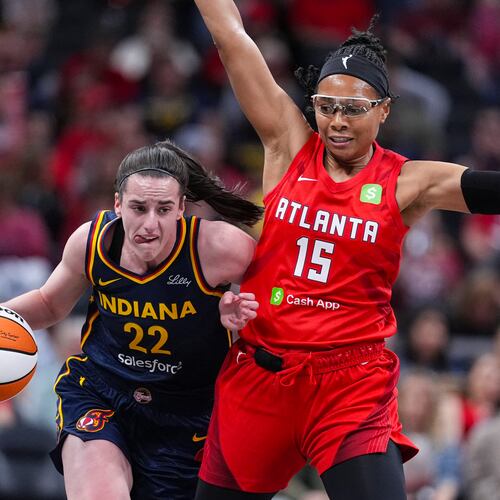We have dubbed them Atlanta’s Dirty Dozen – the villains of Atlanta Sports. We use the term villain loosely. Some are simply sports figures who proved a thorn in our side, stood in our way, or prevented greatness. OK, some are true villains. We’ll let you decide who is who.
In an 11-week series, The Atlanta Journal-Constitution will highlight one of the Dirty Dozen. We will present the series in ascending order, from No. 12 to No. 1. Each story will be accompanied by a video with our staff discusses why each made our list.
We invite you to provide your thoughts each week. Email us at sportstips@ajc.com. We will publish some of the comments each week. Finally, at the series’ conclusion Oct. 15, with the No. 1 villain, we will post a poll allowing you to vote on your top villains.
Flip This House? Heck, in Atlanta we could have our own television show entitled Flip This NHL Team.
Two episodes.
Atlanta famously has lost two NHL franchises to Canada. At the center of the relocations were ownerships who made a financial windfall. Each left a stunned fan bases and sullied the reputation of Atlanta as sports town, as one that cannot support hockey.
Episode One: Nelson Skalbania. The Canadian businessman purchased the Atlanta Flames in 1980 for a then-record $16 million. The Atlanta Flames’ final game came April 12, 1980. They became the Calgary Flames on May 21, 1980 when the sale and relocation was announced. For reference, the San Francisco 49ers sold for $13 million in 1977.
Skalbania made a career of flipping. In the 1970s, it is estimated that he made 1,000 business transactions per year. He later turned his attention to sports. In addition to buying and selling the Flames, he bought and sold the NHL’s Edmonton Oilers, the WHA’s Indianapolis Racers, the NASL’s Memphis Rogues and the Triple-A baseball team Vancouver Canadians.
Skalbania bought the Flames from Tom Cousins, who claimed the team was losing millions of dollars. He put together a group of businessmen from Calgary. Skalbania held a 51% ownership interest. After only one season, he sold his interest. According to an interview with the New York Times in 1981, Skalbania recouped the $1 million he gave Cousins as a deposit, his only contribution, plus another $200,000 and a $6 million advance against the team’s TV rights.
The Flames drew an average attendance of 10,024 in their final year in Atlanta. That same year, the Hawks drew an average attendance of 10,972.
In a list of the top 50 people in Flames history published by a fan website, Skalbania came in at No. 43 for bringing the franchise to Canada. Good for Calgary. Bad for Atlanta.
Credit: AP
Credit: AP
Episode Two: The Atlanta Spirit. The group purchased the Thrashers, NBA’s Hawks and the operating rights to Philips Arena on March 31, 2004. As the NHL had a new collective bargaining agreement, the plan was to sell the Thrashers as soon as possible. That didn’t work out. The ownership began a protracted legal dispute just over a year later in an issue over the Hawks. It wouldn’t be settled for six years.
The Thrashers made their only playoff appearance in 2006-07. Claiming they were losing millions a year, ownership dismantled the team which plunged into a period of no more postseasons and dwindling attendance. On Feb. 16, 2001, part-owner Michael Gearon Jr. told The Atlanta Journal-Constitution that there was a “sense of urgency” to find a buyer interested in keeping the Thrashers in Atlanta. On May 31, 2011, Atlanta Spirit and True North Sports Entertainment reached a sale agreement to purchase and relocate the Thrashers to Winnipeg to begin the 2011-12 season.
The sale and relocation of the Thrashers came despite the fact that the NHL ran and operated the Phoenix Coyotes franchise at the time. One would figure the NHL would want to unload the league-run team to a willing buyer, but it chose to let the Thrashers go in large part because of its ownership.
The Thrashers were sold for $170 million – $110 million to the Atlanta Spirit and $60 million to the NHL as a relocation fee. Atlanta Spirit made a considerable return on investment from the $250 million paid for the two teams and arena seven years earlier. The group sold the Hawks and rights to the arena for $850 million in 2015.
By the way, the Atlanta Spirit ownership of the Hawks didn’t turn out so well either. That’s the retelling of a tale for another day.
About the Author
Keep Reading
The Latest
Featured



